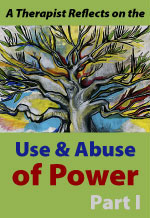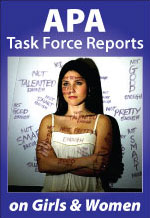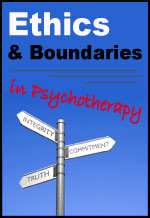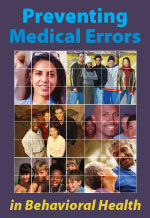 In this new continuing education course for mental health professionals, A Therapist Reflects on the Use and Abuse of Power, Part 1, participants will read and answer questions about a series of twelve articles by Judith Barr, depth psychotherapist and author of Power Abused, Power Healed, to help explore more deeply their own relationship with power – on a personal and professional level – and that of clients. Topics covered in this course include the roots of feelings of powerlessness; how childhood wounds affect our parenting; the roots of corporate power abuse, both from the perspective of the abused and the perspective of the abuser; the roots of our relationships with sexuality, and more. Through examples from current life events explored in the articles, participants will come to recognize how their childhood experience affects their emotions and behaviors and those of their clients. They will also begin to comprehend the impact that the individual’s relationship with power has on our world, and how healing one’s own individual relationship with power can help to heal the abuse and misuse of power globally. Course #20-42 | 2010 | 12 posttest questions | 29 pages | 2 Hours CE for $24
In this new continuing education course for mental health professionals, A Therapist Reflects on the Use and Abuse of Power, Part 1, participants will read and answer questions about a series of twelve articles by Judith Barr, depth psychotherapist and author of Power Abused, Power Healed, to help explore more deeply their own relationship with power – on a personal and professional level – and that of clients. Topics covered in this course include the roots of feelings of powerlessness; how childhood wounds affect our parenting; the roots of corporate power abuse, both from the perspective of the abused and the perspective of the abuser; the roots of our relationships with sexuality, and more. Through examples from current life events explored in the articles, participants will come to recognize how their childhood experience affects their emotions and behaviors and those of their clients. They will also begin to comprehend the impact that the individual’s relationship with power has on our world, and how healing one’s own individual relationship with power can help to heal the abuse and misuse of power globally. Course #20-42 | 2010 | 12 posttest questions | 29 pages | 2 Hours CE for $24
This course is approved for Psychologists, Counselors, Social Workers & MFTs.
Course Teaser:
Introduction
My passion to help heal the misuse and abuse of power in our world began with the inspiration and calling to write the book Power Abused, Power Healed. At first, the calling was driven by abuses of power – both conscious and unconscious – in the healing professions. I witnessed them myself, heard about them from friends and colleagues, and received detailed painful accounts of them from clients.
As I wrote and worked toward publishing Power Abused, Power Healed, it became clear that abuses of power take place in every arena of life. Abuses were coming out into the light of day in limitless arenas in our world. Some of them … people didn’t anticipate, like teachers having affairs with their students. And some of them were very dis-illusioning … like priests molesting the children in their care, and those above the priests in the hierarchical structure not protecting the children.
I knew that when something comes out from being hidden, a profound opportunity for healing exists. As a result, witnessing the abuses coming out into view fed my passion to birth my book into the world, and to work to help inform, intrigue, and inspire people to become part of the healing of the misuse and abuse of power in our world.
Of course, the first step in becoming part of the healing is to recognize the issues related to power in your own life, inside and out, now and long ago. One of the ways I reached out to people and touched them was to publish an online newsletter, including articles that were inspired by events in our world. Events that held up a mirror to us of the misuse and abuse of power in our world, and therefore within us.
This course consists of one cycle, or series of these articles … my reflections on the misuse and abuse of power and our individual relationships with power. My reflections on the vast healing of the misuse and abuse of power to which each of us, especially we therapists, can contribute.
I offer this course with the hope that it will serve you well, within yourself, with your clients, and with all those you touch. It is my deepest hope that nothing in the course be misused or abused in any way.
About the Author:
Judith Barr, MS, LMHC, is passionate about her desire to help heal and transform the planet and is committed to making a difference one-by-one and on a global scale. She brings to her practice a tapestry of natural gifts interwoven with her life experience and professional skills – combining her deep roots in psychotherapy with her own growing-edge spiritual midwifery, the practice of serving as midwife to the birthing and journey of another’s soul. Judith practices in Brookfield, Connecticut. Her background includes private practice as a depth psychotherapist since 1975, an M.S. in Counseling, and licensure as a Mental Health Counselor in Florida, New York, and Connecticut. She has published a book, Power Abused, Power Healed; an audio series, The Spoken Word on Behalf of the Feminine; a Power Abused, Power Healed newsletter; and more than four dozen articles for both professionals and the general public. Judith offers her healing expertise in an array of formats, including working with individuals, groups, workshops, and consultations. In addition to this she offers training and supervision programs for healing arts professionals. Through her writing, her one-to-one and group work, and her speaking engagements, media appearances and teleconferences, Judith teaches about how we can help heal the misuse and abuse of power in all arenas of life, and how we can help to create sustainable safety in our world.
DECEMBER, 2008:
“It was the best of times, it was the worst of times, it was the age of wisdom, it was the age of foolishness, it was the epoch of belief, it was the epoch of incredulity, it was the season of Light, it was the season of Darkness, it was the spring of hope, it was the winter of despair, we had everything before us, we had nothing before us …”
Here we are in a time of immense challenges. And what appear to be vast opposites: joy and sorrow; love and hate; wealth and poverty; integrity and duplicity; magnificent use of power and abuse of power almost beyond comprehension; light and darkness; faith and disbelief.
What if in this time we are on the edge of new possibility, at the brink of truth – just as people were when they believed the earth was flat, only to discover it was not?
What if instead of experiencing the dualities – or polar opposites – and swinging back and forth between the poles, we choose to utilize the extremes to help us heal the split between opposites – within ourselves, between us, and as a result, in the world outside and all around us. In so doing, we create union. In so doing, we create oneness.
What if instead of being the opposite of light, darkness becomes a doorway to light? Think of the Winter Solstice – in the longest, darkest night of the year, the new light is birthed.
What if instead of being the opposite of faith, doubt is seen as a gateway into an even more solid faith?
What if instead of being the opposite of power well-used, abuse of power becomes an opening into power that is utilized magnificently?
Like this:
Like Loading...






